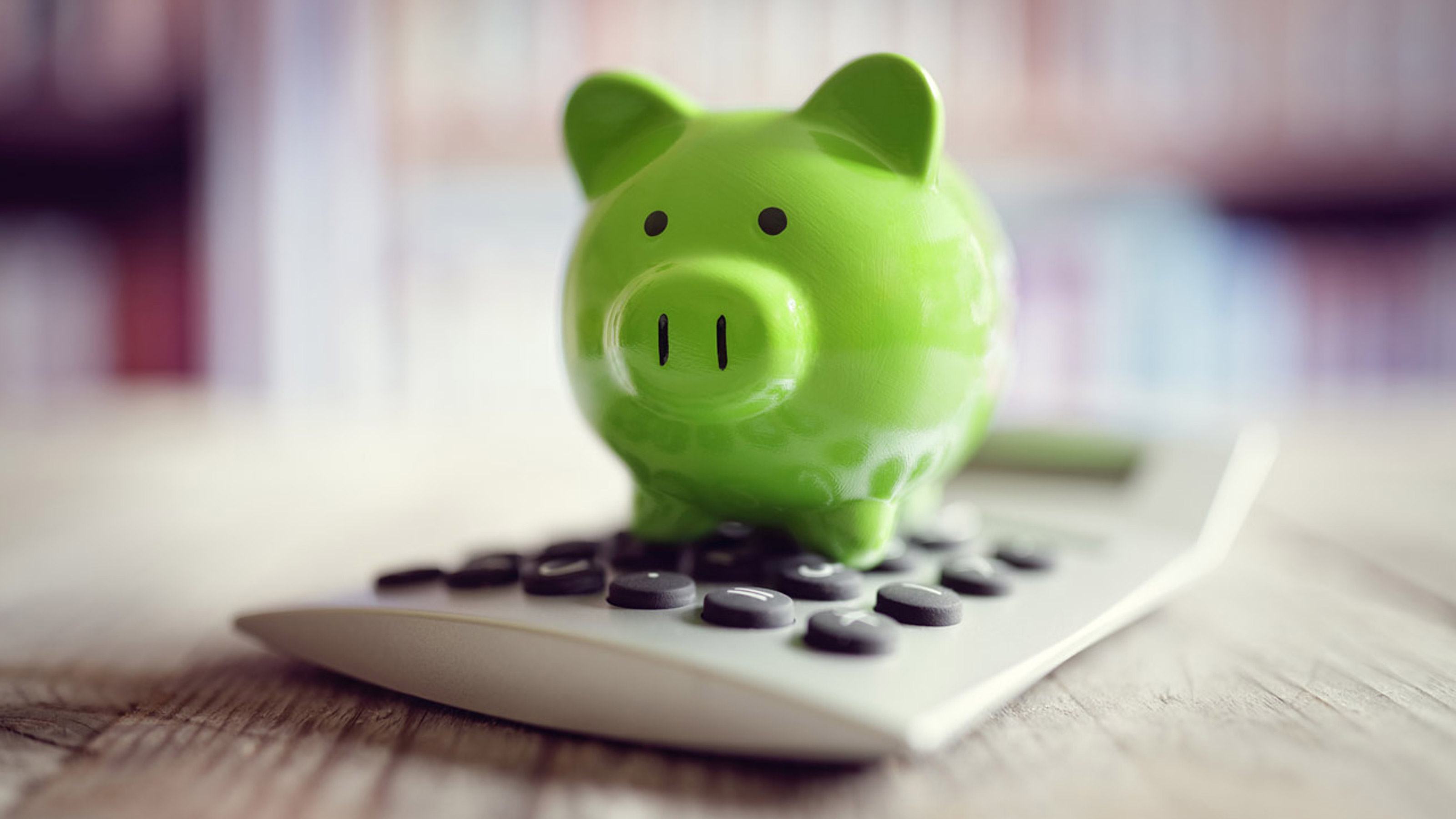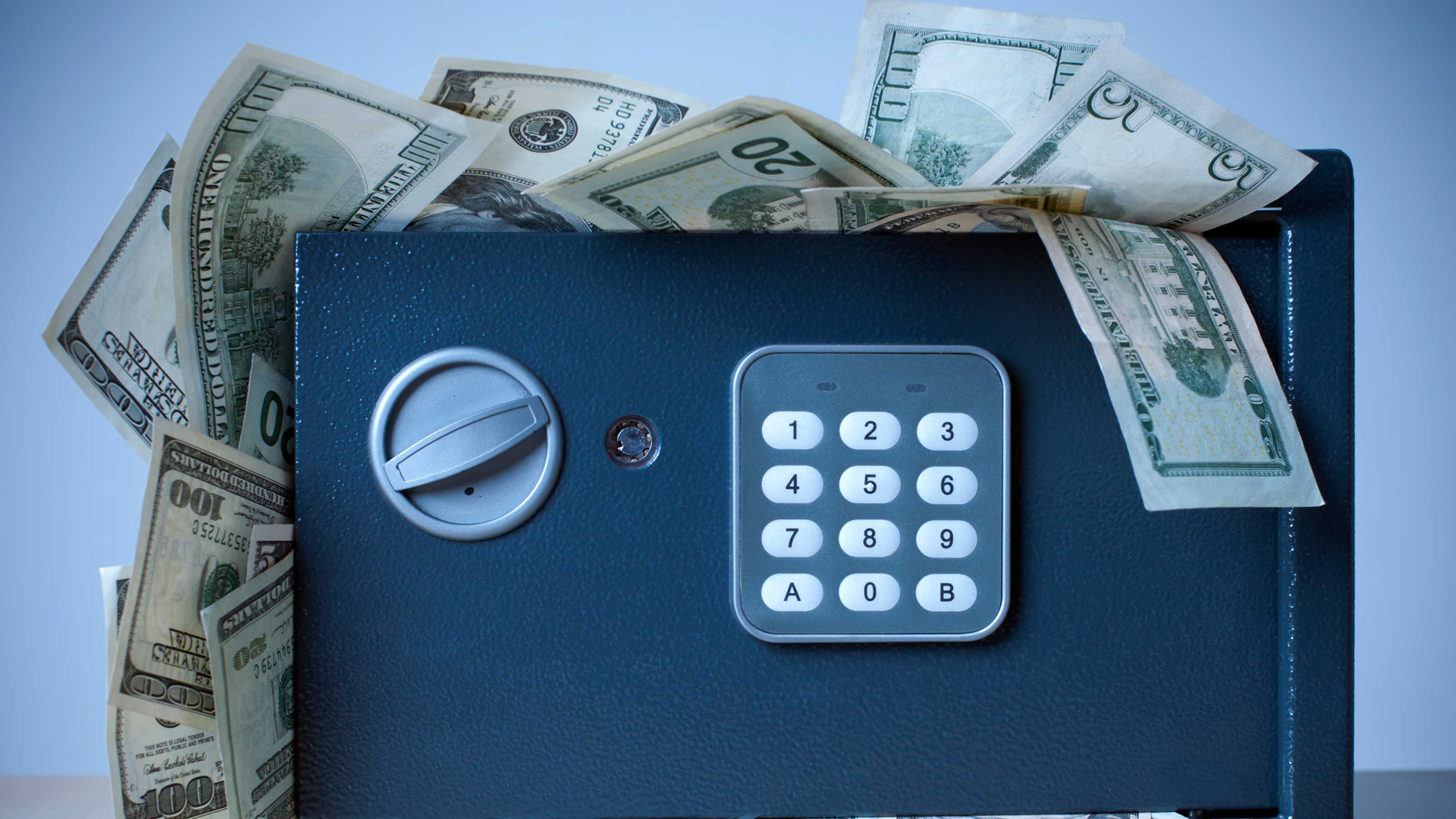6 Ways the Pandemic Has Been a Dress Rehearsal for Retirement – and How You Can Take Advantage
What do lockdowns and retirement have in common? Quite a bit. And the parallels can be helpful in your retirement planning.


Profit and prosper with the best of Kiplinger's advice on investing, taxes, retirement, personal finance and much more. Delivered daily. Enter your email in the box and click Sign Me Up.
You are now subscribed
Your newsletter sign-up was successful
Want to add more newsletters?

Delivered daily
Kiplinger Today
Profit and prosper with the best of Kiplinger's advice on investing, taxes, retirement, personal finance and much more delivered daily. Smart money moves start here.

Sent five days a week
Kiplinger A Step Ahead
Get practical help to make better financial decisions in your everyday life, from spending to savings on top deals.

Delivered daily
Kiplinger Closing Bell
Get today's biggest financial and investing headlines delivered to your inbox every day the U.S. stock market is open.

Sent twice a week
Kiplinger Adviser Intel
Financial pros across the country share best practices and fresh tactics to preserve and grow your wealth.

Delivered weekly
Kiplinger Tax Tips
Trim your federal and state tax bills with practical tax-planning and tax-cutting strategies.

Sent twice a week
Kiplinger Retirement Tips
Your twice-a-week guide to planning and enjoying a financially secure and richly rewarding retirement

Sent bimonthly.
Kiplinger Adviser Angle
Insights for advisers, wealth managers and other financial professionals.

Sent twice a week
Kiplinger Investing Weekly
Your twice-a-week roundup of promising stocks, funds, companies and industries you should consider, ones you should avoid, and why.

Sent weekly for six weeks
Kiplinger Invest for Retirement
Your step-by-step six-part series on how to invest for retirement, from devising a successful strategy to exactly which investments to choose.
Uncharted territories are difficult to navigate, but what if you had the ability to do a test run for one of life’s most important milestones – retirement? This pandemic has been just that in more ways than one.
Families, schools and businesses have been left feeling whiplashed by the efforts of government and officials as they close, re-open and re-close aspects or our economy and our daily lives. The global pandemic has tested our true grit on so many levels as a nation and economy.
It is also shining a spotlight on many of the areas where we have done a good job at preparing for retirement … and some areas that still need some work.
As the saying goes, the show must go on. The good news is if you’re not retired yet, then there’s still time to make some changes.

1. Get a plan in place for how you will fill up that extra time
You may be finding yourself working on various home projects, taking on new hobbies, or reviving old ones during the lockdown. What has been your experience? Maybe the initial thought of a wide-open schedule and an unplanned day sounded exciting, but it turned out to be unfulfilling and boring. Or maybe it was heaven.
Figuring out what to do with all the extra time you’ll have during retirement to live a purposeful and meaningful life is just as important as figuring out how you’ll allocate your money.

2. While you’re at it, figure out how you’ll deal with more ‘togetherness time’
As a result of the shutdowns and stay-at-home orders, families and loved ones had nowhere to go and were forced to spend more time together. This presented a unique opportunity for families to find meaningful engagements in relationships that were often pushed aside or hurried as a result of everyday life demands. On the flip side, coronavirus has amplified problems between some couples as they’ve been stuck in close quarters and forced to confront compatibility issues and navigate the unique problems of the pandemic. In fact, divorce rates have skyrocketed amid coronavirus, and 31% of couples admitted the lockdown has caused irreparable damage to their relationships.
Stress levels will hopefully not be as high during retirement as they are now, but couples should similarly expect more time spent together and garner a sense of what that means for their future — whether positive or negative.

3. Drill down to what you actually need
With the economy shut down and many areas faced with stay-at-home orders, we’ve been forced to hunker down and focus on what we need to survive. The common epiphany shared by many is that, well … we don’t really need all that much. You probably noticed that besides food, housing and utility costs, there wasn’t much else you needed.
If you were lucky enough to transition to telework, your transportation costs likely declined. And shopping for business attire and dry-cleaning bills? Those costs likely plummeted as well. There are expenses that may well increase in retirement — like medical bills — so take this time to note how your spending has changed throughout the pandemic. It should give you a good indication of what you really might need to get by in retirement.

4. Keep some dry powder
This pandemic has also highlighted more than ever the importance of having a cash cushion for emergencies. When an unforeseen expense occurs, it’s best to have three to six months’ worth of expenses in a liquid account. This is no different during retirement.
It’s especially helpful to have a cash cushion when your investment accounts take a dip and you’re best off pausing distributions from these accounts. Being dynamic with your distributions and temporarily bridging expenses from savings will allow your portfolio time to recover.

5. Crunch the numbers
Whether you’re furloughed, searching for employment or are a business owner re-working your strategy, you’ve probably been forced to look at how long you can manage all your bills, given how much you currently have. Although not an exact science, calculating your retirement is much like that.
Regardless of whether you’re living off a 401(k), pension, Social Security and/or investment income in retirement, you’ll need to weigh your current investment income plus expected future income against your annual expenses.

6. Protect your portfolio
If you’re nearing retirement, this last bout of market volatility probably made you acutely aware of how market shocks can impact your carefully laid-out plans. It likely also underscored the importance of managing risk as you get closer to retirement.
Luckily, we’ve seen a rapid recovery in the markets — this time — but take this opportunity to revisit your portfolio allocation to make sure that your risk is aligned with your goals and time horizon. Sometimes there are no second (or third) chances.

Finally, think on your feet
Being flexible and able to adapt to the world’s uncertainties is always a great strategy. Having the ability to pivot and re-tool their finances is helping individuals, families and businesses survive right now. Everyone’s path to retirement looks different. But a test run is one thing that will certainly help you run the show as you get closer to that date.
Profit and prosper with the best of Kiplinger's advice on investing, taxes, retirement, personal finance and much more. Delivered daily. Enter your email in the box and click Sign Me Up.

Julia Pham joined Halbert Hargrove as a Wealth Adviser in 2015. Her role includes encouraging HH clients to explore and fine-tune their aspirations — and working with them to create a road map to attain the goals that matter to them. Julia has worked in financial services since 2007. Julia earned a Bachelor of Arts degree cum laude in Economics and Sociology, and an MBA, both from the University of California at Irvine.
-
 Dow Leads in Mixed Session on Amgen Earnings: Stock Market Today
Dow Leads in Mixed Session on Amgen Earnings: Stock Market TodayThe rest of Wall Street struggled as Advanced Micro Devices earnings caused a chip-stock sell-off.
-
 How to Watch the 2026 Winter Olympics Without Overpaying
How to Watch the 2026 Winter Olympics Without OverpayingHere’s how to stream the 2026 Winter Olympics live, including low-cost viewing options, Peacock access and ways to catch your favorite athletes and events from anywhere.
-
 Here’s How to Stream the Super Bowl for Less
Here’s How to Stream the Super Bowl for LessWe'll show you the least expensive ways to stream football's biggest event.
-
 How to Add a Pet Trust to Your Estate Plan: Don't Leave Your Best Friend to Chance
How to Add a Pet Trust to Your Estate Plan: Don't Leave Your Best Friend to ChanceAdding a pet trust to your estate plan can ensure your pets are properly looked after when you're no longer able to care for them. This is how to go about it.
-
 Want to Avoid Leaving Chaos in Your Wake? Don't Leave Behind an Outdated Estate Plan
Want to Avoid Leaving Chaos in Your Wake? Don't Leave Behind an Outdated Estate PlanAn outdated or incomplete estate plan could cause confusion for those handling your affairs at a difficult time. This guide highlights what to update and when.
-
 I'm a Financial Adviser: This Is Why I Became an Advocate for Fee-Only Financial Advice
I'm a Financial Adviser: This Is Why I Became an Advocate for Fee-Only Financial AdviceCan financial advisers who earn commissions on product sales give clients the best advice? For one professional, changing track was the clear choice.
-
 I Met With 100-Plus Advisers to Develop This Road Map for Adopting AI
I Met With 100-Plus Advisers to Develop This Road Map for Adopting AIFor financial advisers eager to embrace AI but unsure where to start, this road map will help you integrate the right tools and safeguards into your work.
-
 The Referral Revolution: How to Grow Your Business With Trust
The Referral Revolution: How to Grow Your Business With TrustYou can attract ideal clients by focusing on value and leveraging your current relationships to create a referral-based practice.
-
 This Is How You Can Land a Job You'll Love
This Is How You Can Land a Job You'll Love"Work How You Are Wired" leads job seekers on a journey of self-discovery that could help them snag the job of their dreams.
-
 65 or Older? Cut Your Tax Bill Before the Clock Runs Out
65 or Older? Cut Your Tax Bill Before the Clock Runs OutThanks to the OBBBA, you may be able to trim your tax bill by as much as $14,000. But you'll need to act soon, as not all of the provisions are permanent.
-
 The Key to a Successful Transition When Selling Your Business: Start the Process Sooner Than You Think You Need To
The Key to a Successful Transition When Selling Your Business: Start the Process Sooner Than You Think You Need ToWay before selling your business, you can align tax strategy, estate planning, family priorities and investment decisions to create flexibility.
